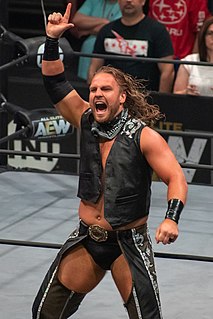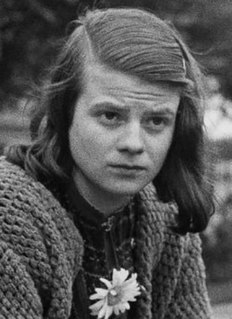A Quote by Maggie Stiefvater
He was full of the restless, dissatisfied energy that always seemed to move into his heart after he visited home these days. It had something to do with the knowledge that his parents’ house wasn’t truly home anymore — if it had ever been — and something to do with the realization that they hadn’t changed; he had.
Related Quotes
He was about to go home, about to return to the place where he had had a family. It was in Godric’s Hollow that, but for Voldemort, he would have grown up and spent every school holiday. He could have invited friends to his house. . . . He might even have had brothers and sisters. . . . It would have been his mother who had made his seventeenth birthday cake. The life he had lost had hardly ever seemed so real to him as at this moment, when he knew he was about to see the place where it had been taken from him.
How sadly things had changed since she had sat there the night after coming home! Then she had been full of hope and joy and the future had looked rosy with promise. Anne felt as if she had lived years since then, but before she went to bed there was a smile on her lips and peace in her heart. She had looked her duty courageously in the face and found it a friend--as duty ever is when we meet it frankly.
There were times when it appeared to Dorian Gray that the whole of history was merely the record of his own life, not as he had lived it in act and circumstand, but as his imagination had created it for him, as it had been in his brain and in his passions. He felt that he had known them all, those strange terrible figures that had passed across the stage of the world and made sin so marvellous, and evil so full of subtlety. It seemed to him that in some mysterious way their lives had been his own.
I once received a letter from an old lady in California who informed me that when the tired reader comes home at night, he wishes to read something that will lift up his heart. And it seems her heart had not been lifted up by anything of mine she had read. I think that if her heart had been in the right place, it would have been lifted up.
To evoke the classic period of Italian cinema in a little film seemed like a great, fun thing to do. I had relations to that period. I had known Fellini and I had known Antonioni. I had made a movie with Antonioni and I had visited Fellini in his studios. So, it seemed like something worthwhile doing. You bring yourself to that mythical cinema.
My father had not been outside the house except to drive back and forth to work or sit out in the backyard, for months, nor had he seen his neighbors. Now he looked at them, from face to face, until he realized I had been loved by people he didn't even recognize. His heart filled up, warm again as it had not been in what seemed so long to him- save small forgotten moments with Buckley, the accidents of love that happened with his son. ~pgs 209-210; Buckley, Lindsey and Jack on Susie
"If it wasn’t for the mist we could see your home across the bay," said Gatsby. "You always have a green light that burns at the end of your dock." Daisy put her arm through his abruptly but he seemed absorbed in what he had just said. Possibly it had occurred to him that the colossal significance of that light had now vanished forever. Compared to the great distance that had separated him from Daisy it had seemed very near to him, almost touching her. It had seemed as close as a star to the moon. Now it was again a green light on a dock. His count of enchanted things had diminished by one.
It would perhaps not be amiss to point out that he had always tried to be a good dog. He had tried to do all the things his MAN and his WOMAN, and most of all his BOY, had asked or expected of him. He would have died for them, if that had been required. He had never wanted to kill anybody. He had been struck by something, possibly destiny, or fate, or only a degenerative nerve disease called rabies. Free will was not a factor.
When I was able to get home it first hit me that you had left and I couldn't do anything about it. Every day before that an evening with you was waiting for me after school, now no more, strange feeling. I had grown too accustomed to your warmth. That is also a danger. At home I looked at the notebooks that you had bought and I got the stupidest surge of hope that I'd find something of you, something especially for meant for me. I would so much like to have something of you that I could always keep by me, that nobody else would notice.
Nothing that had ever happened to him, not the shooting of Oyster, or the piteous muttering expiration of John Wesley Shannenhouse, or the death of his father, or internment of his mother and grandfather, not even the drowning of his beloved brother, had ever broken his heart quite as terribly as the realization, when he was halfway to the rimed zinc hatch of the German station, that he was hauling a corpse behind him
The ocean was one of the greatest things he had ever seen in his life—bigger and deeper than anything he had imagined. It changed its color and shape and expression according to time and place and weather. It aroused a deep sadness in his heart, and at the same time it brought his heart peace and comfort.
What an unbearable creature he must have been in those days--and yet in those days he had been comparatively innocent. That was another mystery: it sometimes seemed to him that venial sins--impatience, an unimportant lie, pride, a neglected opportunity--cut you off from grace more completely than the worst sins of all. Then, in his innocence, he had felt no love for anyone; now in his corruption he had learnt.

































